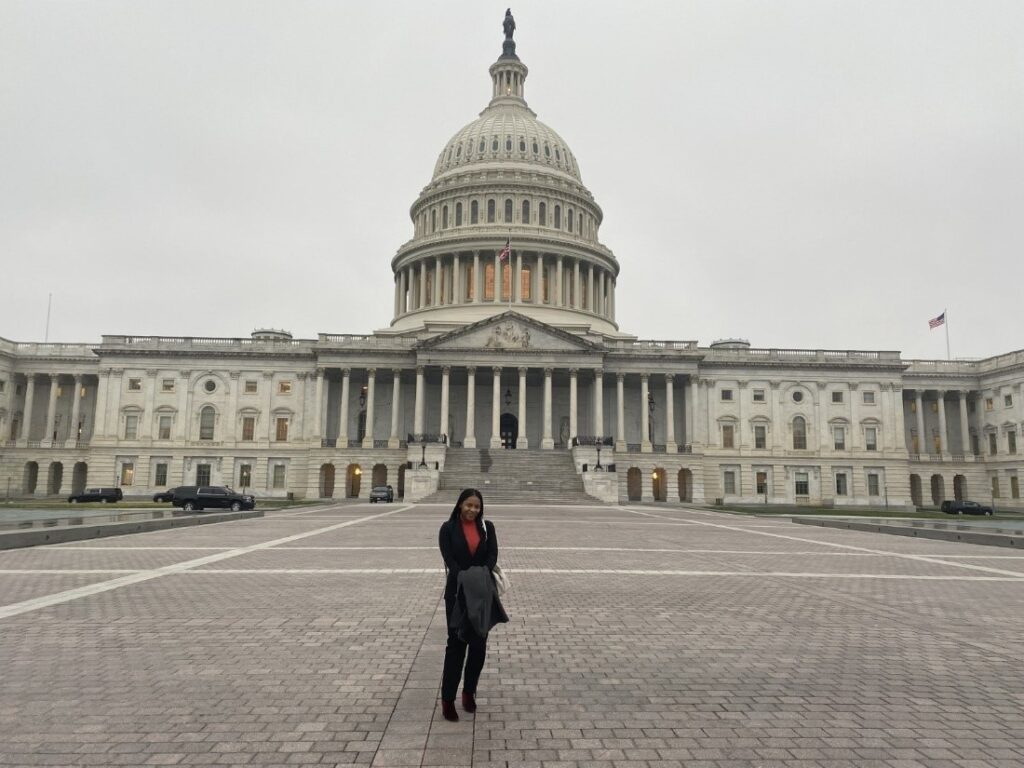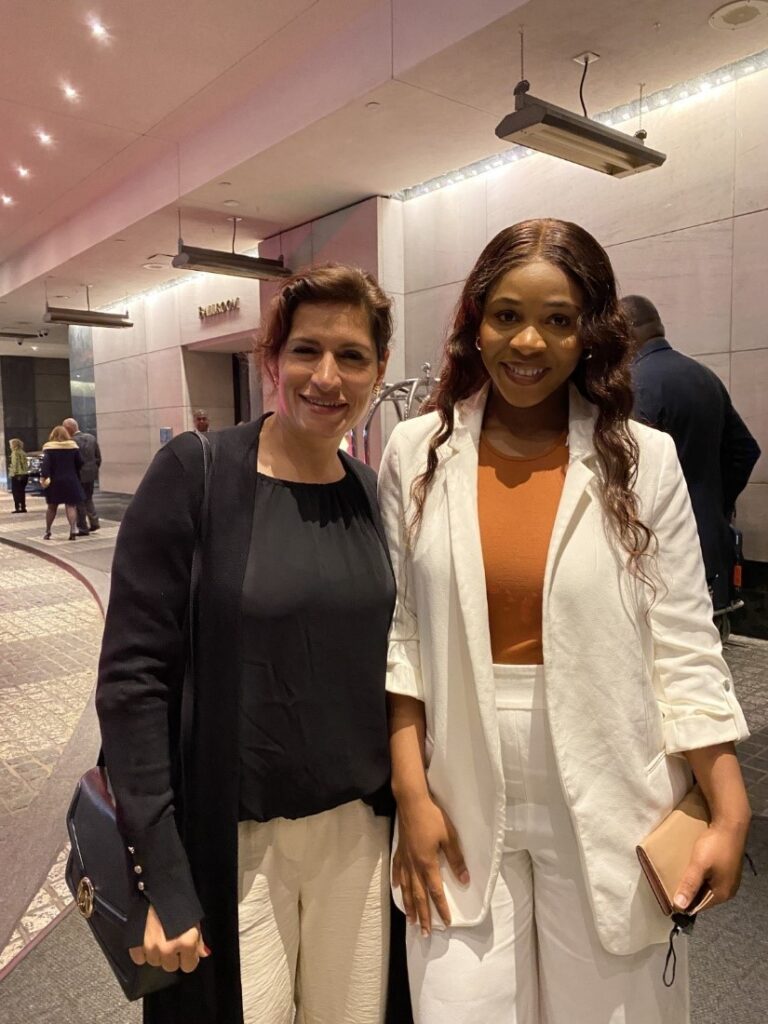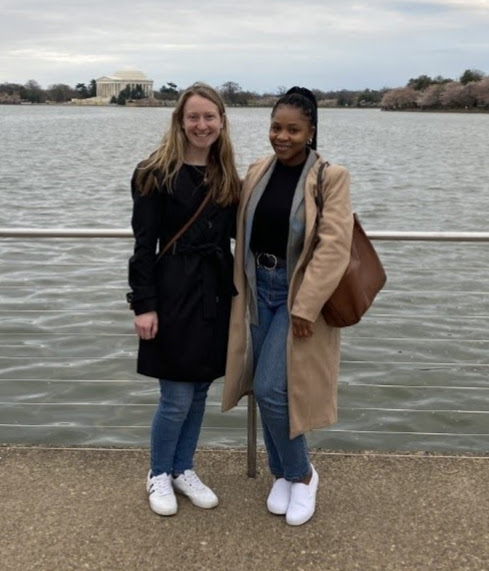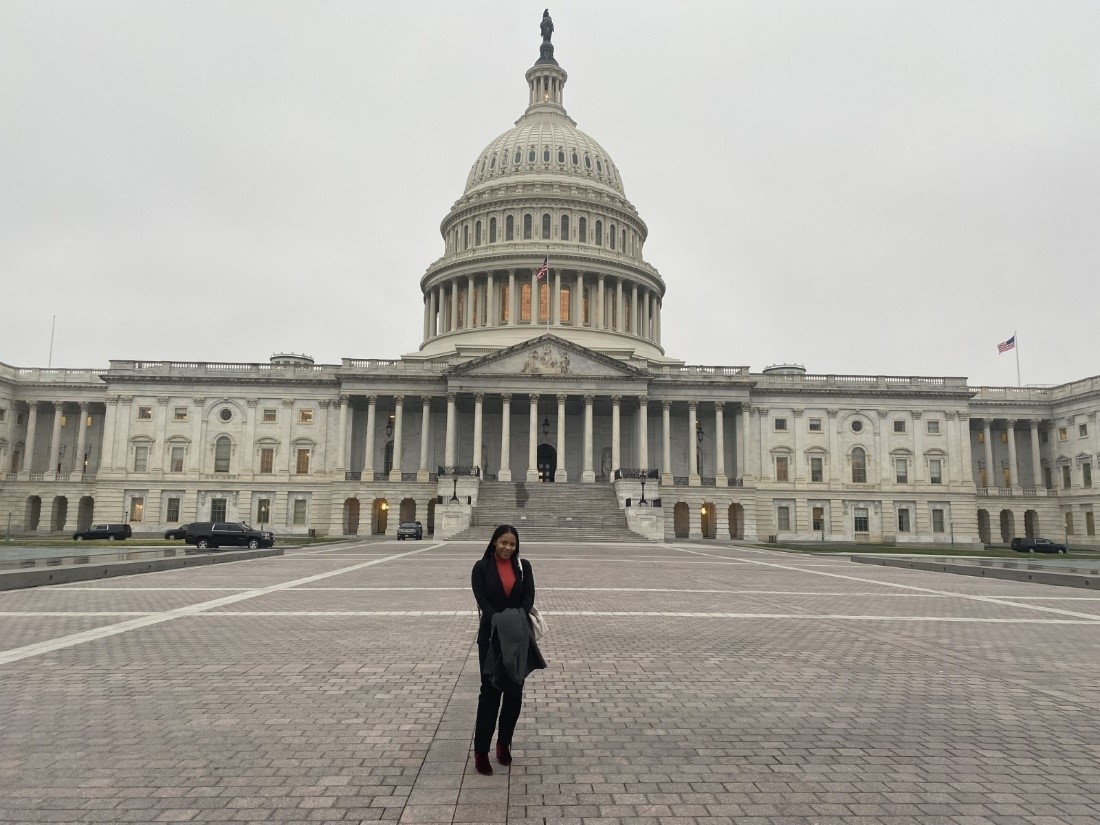Paving a Way to Peacebuilding
Windila Balbone May 26, 2022
Growing up, my perception of conflicts and atrocities living in the town of Bittou in Burkina Faso, originated from movies like Hotel Rwanda, watching the daily news on the ongoing Israeli Palestinian conflict on France24, and learning about the two world wars in my middle school history class. In other words, war, terrorism, and atrocity were distant notions to me. It happened to people on my television screen and in history books. But never did it occur to me that my own country would experience such trouble, and nor would I have predicted that I would one day fear going home.
These troubles are the undeniable realities I learned to tailor my life to when conflict broke out in the Sahel region. Starting in our neighboring countries of Mali and Niger and spilling into Burkina Faso in 2014, after I left the country, this conflict has internally displaced over 1.5 million civilians, caused thousands of deaths, and continues to terrorize many today. Among those living in terror are my direct family members. The uncertainty of the nature of news the next call from Burkina Faso will bring into my life and the desire to bring peace to my community and many others globally fuels my will and inquisitiveness to work on international peace and security issues.

After being granted the opportunity to migrate to the United States, it became apparent that I needed to use all the tools and resources at my disposal to assist my community in Burkina Faso. While learning the English language and assimilating to the American culture in high school, I participated in Model United Nations conferences representing different countries and discussing numerous issues from climate change to migration crises and conflicts. Additionally, I became a certified peer mediator, mediating cross-cultural conflict resolution processes amongst my peers and tutoring newly arrived immigrant students. Being part of an International high school exposed me to a diverse group of individuals who also had to flee conflict and oppression and inspired me to study international relations in college.
The acquisition of theoretical knowledge through numerous courses such as international conflict, U.S. Politics, and Policy enabled me to understand the dilemma of war. Yet, I still felt helpless witnessing the violence occurring in many parts of the world. My desire to take direct action led me to the International Rescue Committee (IRC). During my four years at IRC, I worked as an interpreter, a speaker sharing my own immigration experience during fundraisers, an intern, and a peer mentor for the Refugee Youth program. I helped refugee students and parents with housing relocation, school applications, tutoring, and introduced them to programs for better support. This experience helped me gain insight into how conflicts can impact the lives of people and an in-depth understanding of the different international laws and bodies addressing crises and post-conflict recovery.

In addition, I also worked for Soliya, an international non-profit organization using new media technologies to create and mobilize a global community of youth to promote intercultural understanding in diverse societies. Facilitating these conversations among individuals from different ethnic, cultural, and religious backgrounds reinforced my belief that cross-cultural dialogues and constructive engagement with deference are imperative to restore peace.
To quote Albert Einstein, I quickly learned that “the only source of knowledge is experience.” In my pursuit of more experience in peacebuilding and wanting to understand how American foreign policy is shaped, I took the opportunity and applied for the Herbert Scoville Jr Peace Fellowship. Becoming a Scoville fellow at the Friends Committee on National Legislation (FCNL) Education Fund has exposed me to the world of peacebuilding and the ways different actors such as civil society, Congress and the administration, international institutions, and foreign governments influence peacebuilding around the world.

At FCNL Education Fund, I am currently researching and updating the Democratic Republic of Congo country assessment focused on atrocity prevention and peacebuilding. Moreover, I am actively working with the Atrocity Prevention and Protection Working Group (PPWG), helping Shukria Dellawar, the Legislative and Policy Manager for the Prevention of Violent Conflict, facilitate and organize meetings with experts regarding different issues and conflicts. From the atrocities in Myanmar and Ethiopia and the current Russian invasion of Ukraine, I am helping draft statements and recommendations for solutions to these conflicts. Among other things, I attend peacebuilding educational events, hearings, and briefings which grant me the opportunity to learn about passed legislation and implementation efforts on the Global Fragility Act and the Elie Wiesel Genocide and Atrocities Prevention Act. A profound lesson I have learned so far is how complex and challenging things can be for advocates and how important it is to include the voices of local peacebuilders when proposing solutions.
As I continue my fellowship at FCNL Education Fund, the lessons I learn about atrocity prevention and peacebuilding enable me to reflect on the opportunities and challenges a young Black woman faces while paving her way to becoming a peacebuilder. It is also a reminder that every day is a step closer to the change I want to witness in our world. I hope to keep acquiring the necessary knowledge, tools, and experience to influence better and peaceful outcomes in countries experiencing war, especially my native country, Burkina Faso.
Windila Balbone is a Spring 2022 Scoville Fellow with the Friends Committee on National Legislation Education Fund..

